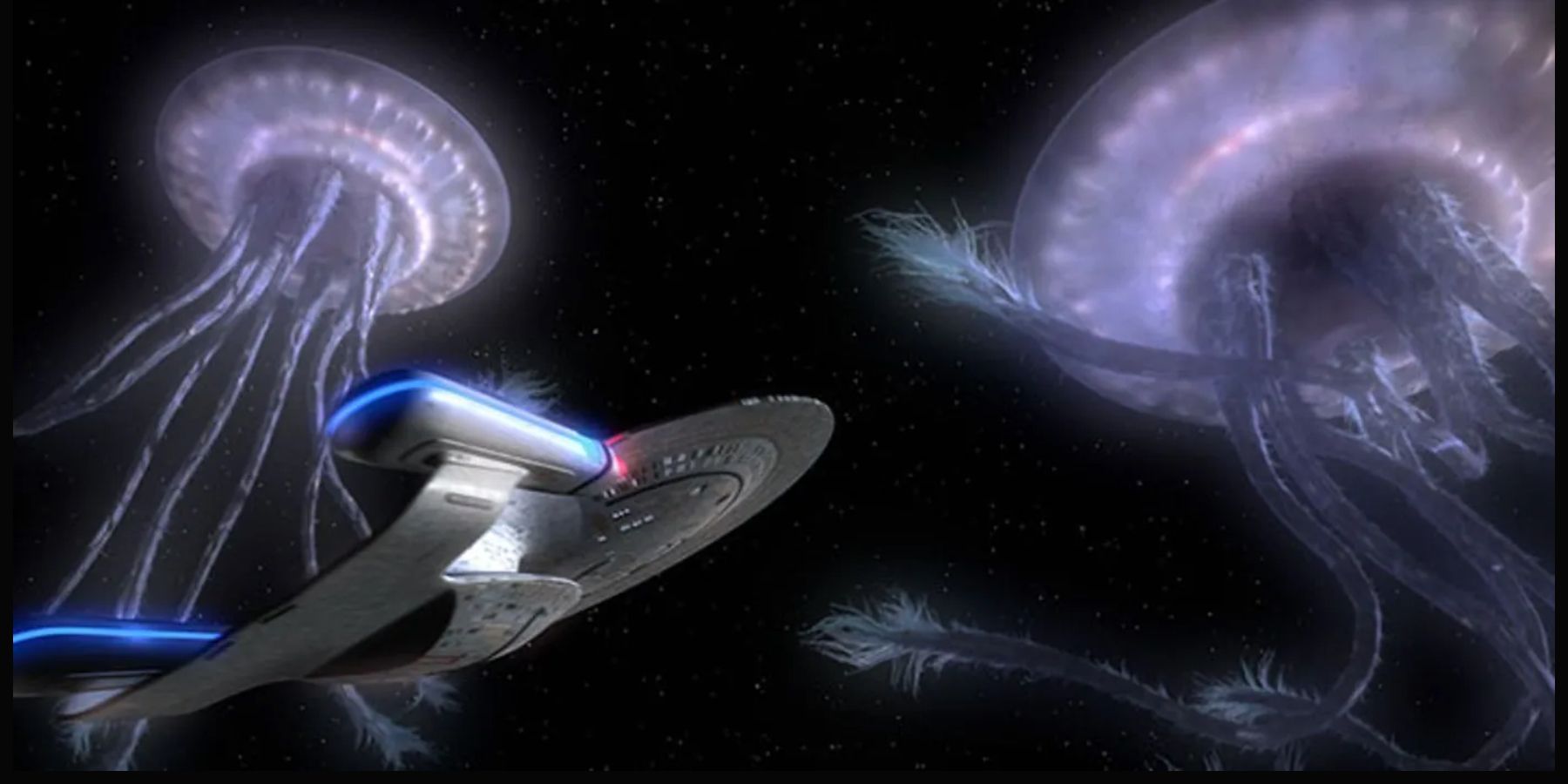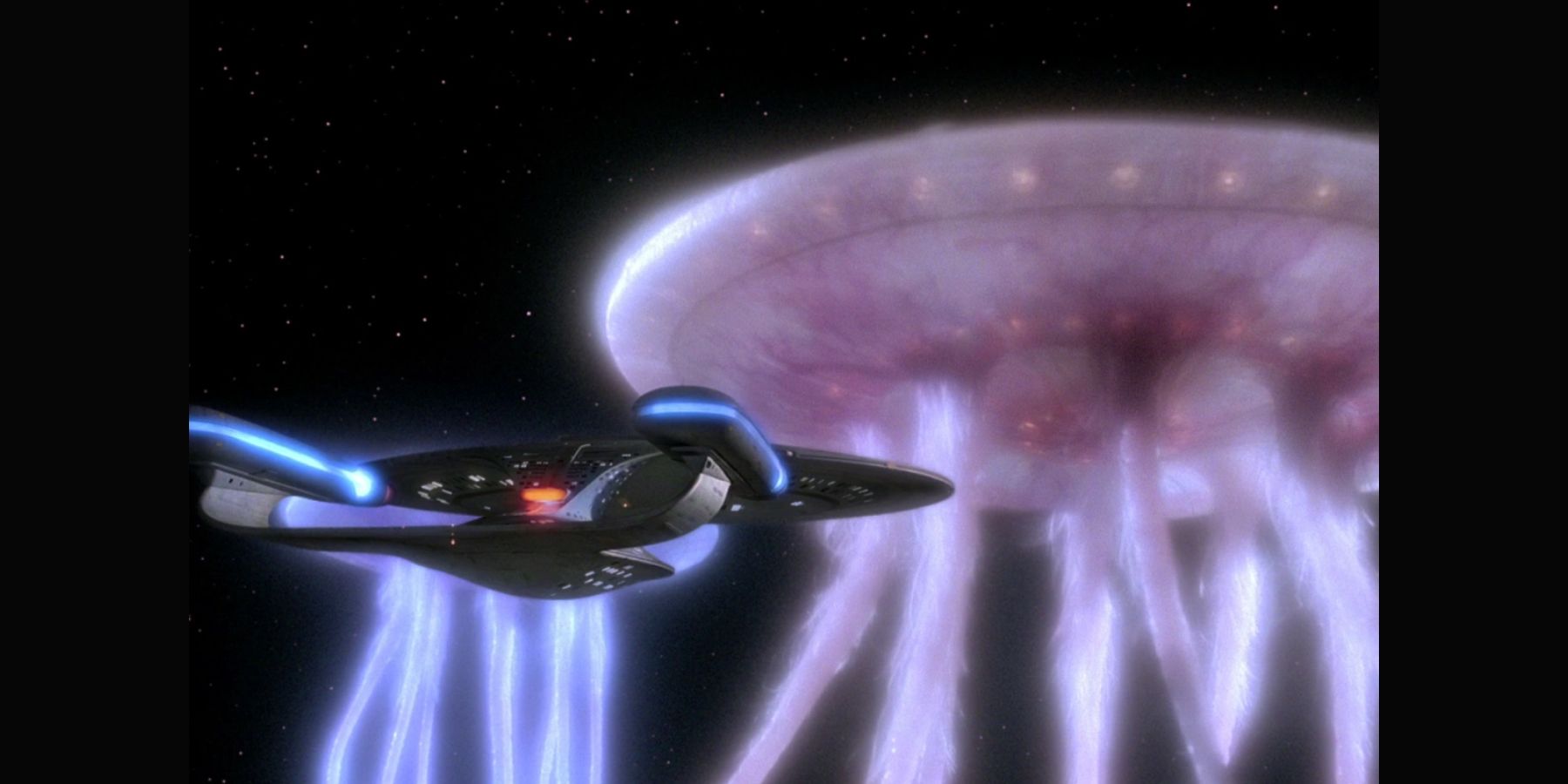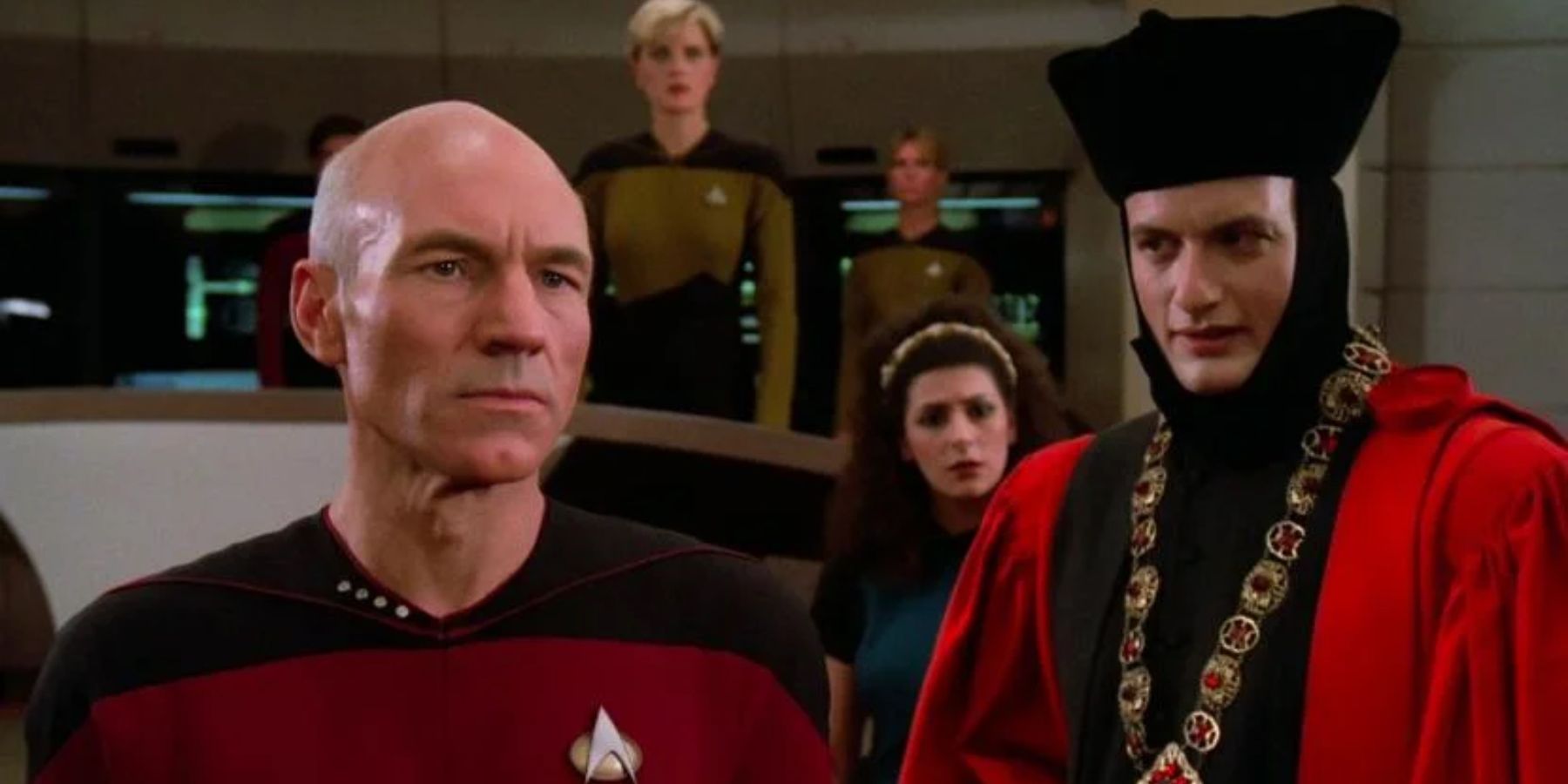The universe found within Star Trek is an incredibly rich and seemingly ever expanding one. The franchise features a plethora of amazing futuristic technology (some of which might even be achieved today) and complex alien cultures. Over the years, the shows' writers have tied a lot of the information up into neat bundles, storylines with satisfying endings, and character arcs so perfect that they appear planned out in full from the start.
A lot of this, however, is TV magic. Most of the time, these shows started in chaos. No Star Trek series fits this statement more than that of The Next Generation. As a matter of fact, a very last minute script change altered the entire series (and potentially the franchise) forever.
TNG didn’t have the best of starts, being born into chaos. With the slow decline of the Original Series, followed by the massive success of their films, producers were not sure how well the new show would do. This, combined with various writers strikes and the scrambling to come up with engaging, episodes left a sour taste in audiences' mouths. However, this is not to say the first season did not have its ups. One of the best things to come out of it — from the very first episode, in fact — was the enigmatic, nefarious Q.
This near-omnipotent, god-like being positioned himself right on the border between friend and foe. His introduction was impactful, casting the crew of the Enterprise right into the path of a far more powerful Borg cube. He did so in an effort to put humans in their place, and show them how complacent they had become. His appearances from this point onwards were always brilliant, clever, and engaging. Actor John de Lancie fleshed out the character and made him into something truly special.
It may come as a surprise then, that this pivotal character almost didn’t exist. When first writing the story for the pilot episode, the show's creator Gene Roddenberry hired a former Original Series script editor, Dorothy Fontana, to help. She was tasked with writing the episode, a story revolving around Farpoint station and how it turns out to be a giant, jellyfish-like space creature. At this point it was just a single, one-hour episode. However, Paramount stepped in and demanded them to double the runtime, wanting to make a big impact with the first episode to shake off any of the cobwebs left from The Original Series.
Things got complicated between Roddenberry and Fontana. She claimed he never paid her fairly for the now two-hour story she had to write in such short notice, and he stated that she couldn’t handle the time pressure. Either way, it resulted in Roddenberry himself setting in and adding a fair bit into the existing 1-hour story to flesh it out. Unbeknownst to him, his little addition brought about an era of Q related shenanigans.
Roddenberry is no stranger to putting god-like beings into Star Trek, as he himself has an interesting relationship with religion. It was something he did a lot in the Original Series: using these powerful ‘gods’ as plot devices to test the crew of the Enterprise, and prove to them that humanity was worthy. He would paint them as egotistical, arrogant, false gods, a theme that stuck when he introduced Q. Because this was a theme for Roddenberry, the writers had their qualms about including him. They were worried that he bore a lot of similarities to the Original Series character Trelane, and that reintroducing such a character would not work in the context of the new show. Roddenberry stuck to his guns however, insisting that fans would love it. Lo and behold, he was right.
Q’s introduction to the episode gave a fairly generic space mystery much more flavor. It also gave the show a greater meaning and a long-lasting sense of foreboding with the introduction of the Borg. They would continue to lurk in the background for the majority of the show, and Q provided the writers with the perfect means to properly start their arc. Not only did Q bring about the introduction to what might be the best villains of the franchise, and Picard's true nemesis, but he became the perfect springboard for the typical Star Trek questions surrounding morality, and greater goods. His appearances transcend TNG. They consistent, but ever-changing, his character evolving over time. It was John de Lancie who really sold the character, masterfully blending comedy with fear.
Roddenberry would have been shocked to see the impact that his last-minute rewrite and introduction of Q made on the overall franchise. Q has since appeared not only in Voyager and Deep Space 9, but also returning in Lower Decks and Picard. He has become an iconic part of the Star Trek franchise alongside the likes of Spock and the much loved Miles O'Brien. Each episode he appears in is a joy to watch. Roddenberry took a risk, and while a lot of these didn’t pan out, it’s fair to say that this one did. The character of Q ensured that TNG did something drastically different from anything seen before.



